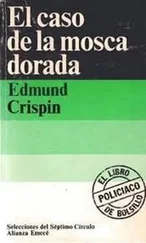Amongst the crowds the heat banished comfort, but stimulated the itch to uneasy and purposeless movement. Certain main streams, between the bars, the platform, the ticket-offices, the lavatories, and the main entrances, were perhaps discernible; but they had only the conventional boundaries of currents on a map – they overflowed their banks amongst the merely impassive, who stood at the angles of their confluence in attitudes of melancholy or despair. Observed from ground level, this mass of humanity exhibited, in its efforts to move hither and thither, surprising divergences from the horizontal; people pressed forward to their destinations leaning forward at a dangerous, angle, or, peering round the bodies of those in front of them, presented the appearance of criminals half-decapitated. A great many troops, bearing ponderous white cylinders apparently filled with lead, elbowed their way apologetically about, or sat on kit-bags and allowed themselves to be buffeted from all angles. Railway officials controlled the scene with the uneasy authority of schoolmasters trying to extort courteous recognition from their pupils after term had ended.
‘Good God,’ said Geoffrey as he struggled forward, carrying a suitcase with which he made periodic involuntary assaults on the knees of the passers-by, ‘are we even going to get on this train?’
Fielding, still inappropriately dressed in the morning clothes belonging to his recent occupation, merely grunted; the temperature seemed to overcome him. When they had progressed, clawing and pushing, another two yards, he said:
‘What time is it supposed to go?’
‘Not for three-quarters of an hour yet.’ The relevant part of the sentence was drowned in a sudden demoniac outburst of hooting and whistling. He repeated it at the top of his voice. ‘Three-quarters of an hour,’ he bellowed.
Fielding nodded, and then, surprisingly, vanished, with a shouted explanation of which the only word audible was ‘clothes’. A little bemused, Geoffrey laboured to the ticket-office. The tickets occupied him for some twenty minutes, but in any case the train seemed likely to depart late. He waved his bag in optimistic query at a porter, passing on some nameless, leisurely errand, and was ignored.
Then he went, reflecting a little sadly on the miseries which our indulgences cause us, to get a drink.
The refreshment-room was decorated with gilt and marble; their inappropriate splendours cast a singular gloom over the proceedings. By the forethought of those responsible for getting people on to trains the clock had been put ten minutes fast, a device which led to frequent panics of departure among those who were under the impression that it showed the right time. They were immediately reassured by others, whose watches were slow. Upon discovery of the real hour, a second and more substantial panic occurred. Years of the Defence of the Realm Act had conditioned the British public to remain in bars until the latest possible moment.
Geoffrey deposited his bag by a pillar (someone immediately fell over it), and elbowed his way to the bar, which he clutched with the determination of a shipwrecked sailor who has reached a friendly shore. The sirens lurking behind it, with comparative freedom of movement, were engaged in friendly discourse with regular customers. A barrage of imperative glances and despairing cries for attention failed, for the most part, to move them. Some brandished coins in the hope that this display of affluence and good faith would jerk these figures into motion. Geoffrey found himself next to a dwarfish commercial traveller, who was treating one of the barmaids to a long, rambling fantasy about the disadvantages of early marriage, as freely exemplified by himself and many friends and relations. By pushing him malignantly out of the way, Geoffrey managed eventually to get a drink.
Fielding reappeared as inexplicably as he had gone, dressed in a sports coat and flannels and carrying a suitcase. He explained rather breathlessly that he had been back to his flat, and demanded beer. The ritual of entreaty was again enacted. ‘ Travelling ,’ said Fielding with deep feeling.
‘I hope we don’t have to get in with any babies,’ said Geoffrey gloomily. ‘If they don’t shriek out and crawl all over me, they’re invariably sick.’
There were babies – one, at least – but the first-class compartment containing it was the only one with two seats vacant – one of them, on to which Geoffrey at once hurled a mass of impedimenta in token of ownership, an outside corner. He then applied himself to getting Fen’s butterfly-net on to the rack, assisted by Fielding, and watched with interest by the other occupants of the compartment. It was just too long. Geoffrey regarded it with hatred: it was growing, in his eyes, into a monstrous symbol of the inconvenience, shame, and absurdity of his preposterous errand.
‘Try standing it up against the window,’ said the man sitting in the corner opposite Geoffrey’s. His plumpness and pinkness outdid Fielding’s. Geoffrey felt, regarding him, like a man who while brandishing an Amati is suddenly confronted with a Strad.
They put this scheme into practice; whenever anyone moved his feet the net fell down again.
‘What a thing to bring on a train,’ said the woman with the baby, sotto voce .
It was eventually decided to lay the net transversely across the carriage, from one rack to the other. The whole compartment rose – not with any enthusiasm, since it was so hot – to do justice to this idea. A woman seated in one of the other corners, with a face white and pock-marked like a plucked chicken’s breast, complainingly shifted her luggage to make room. Then she sat down again and insulated herself unnecessarily against the surrounding humanity with a rug, which made Geoffrey hot even to look at. With a great deal of obscure mutual encouragement and admonition, such as ‘Up she goes’ and ‘Steady, now’, Geoffrey, Fielding, the fat man, and a young clergyman who occupied the remaining corner hoisted the net into position. The baby, hitherto quiescent, awoke and embarked upon a running commentary of snorts and shrieks; it grunted like the pig-baby in Alice , until they expected it to be metamorphosed before their eyes. The mother jogged it ruthlessly up and down, and glared malignantly at the progenitors of the disturbance. People searching for seats peered into the compartment and attempted to assess the number of people engaged in this hullabaloo. One went so far as to open the door and ask if there was any room, but he was ignored, and soon went away again.
‘Disgraceful!’ said the woman with the baby. She bumped it up and down even more furiously than before, and cooed at it, adding to its noises with her own.
The net was by now secured at either end, and more or less conveniently placed, except that anyone rising incautiously or coming into the compartment was liable to bang his head on it. Geoffrey profusely thanked his assistants, who sat down again looking hot but pleased. He turned back to transfer the remainder of his belongings from the seat on to the rack. They were now topped by a letter not his own, but plainly addressed to him. The paper and typing looked uncomfortably familiar. He opened it and read:
There’s still time to get off the train. We have our setbacks, but we can’t go on failing indefinitely .
Ignoring Fielding’s curious glance, he put it thoughtfully in his pocket and heaved the remainder of his things out of the way. In the confusion of a moment before, anyone in the compartment could have dropped that note, and for that matter – since the window was wide open – anyone could have flicked it in from outside. He tried to remember the dispositions of the various persons in the compartment, and failed. He sat down feeling somewhat alarmed.
Читать дальше












